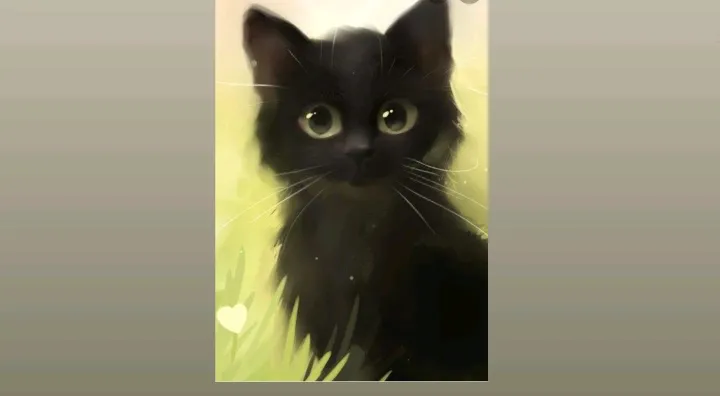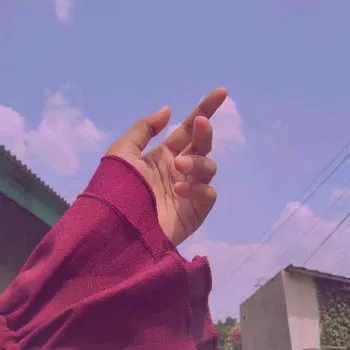Q &A about 🐈 Health ......
let's solve your douts about 🐈😺 cats ...........
read full if you are interested about 🐈😺 cats ......
after readed if you have a doubt 🧐
comment me ...
1. how much age does cat 🐈 live ?
★While 13 to 17 years is the average life expectancy for an indoor cat, some live much shorter lives while others live well into their 20s. One kitty, Crème Puff, made it to the ripe old age of 38! Cats won't complain when they don't feel good
2. How long does an indoor cat live?
10-15 years
Indoor cats live on average 10-15 years, while outdoor cats live on average 2-5 years This handout is intended to help you sort out the pros and cons associated with each lifestyle so you can rest assured your cat will have both an enriched life and protection from environmental hazards.
3. Why do cats meow?
Most behavioral experts believe the meowing in cats is an attention-seeking behavior. Kittens meow to their mothers, likely as a way to get fed or get loved.
Since it worked as a kitten, adult cats likely continue the behavior with their humans, when they need something like food or companionship.
4. Why is my cat vomiting?
Sometimes people get frustrated with us as vets because they’d like a simple answer to this question, and unfortunately, there’s not. Vomiting is a symptom of many, many diseases. Cats also vomit to bring up hairballs, which collect in their stomachs as a by-product of the grooming that they do.
When we’re trying to figure out what’s making a cat vomit, we separate the list of considerations into two main categories: causes of acute vomiting, and causes of chronic vomiting. By rough definition, acute vomiting has been going on for less than 7 days. Typically an acutely vomiting cat is also ill. Causes of acute vomiting include ingestion of an irritating substance, such as plant material, gastrointestinal foreign body, ingestion of a toxin or poison, infection due to bacteria, virus, or parasites, kidney or liver failure, and pancreatitis.
All of those things can also cause chronic vomiting. In this case the cat may feel well between bouts of vomiting, but there’s typically an underlying cause. Add food allergies, inflammatory bowel disease, hyperthyroidism, and cancer to the above list when considering the causes of chronic vomiting.
5. Why isn’t my cat using the litter box?
Failure to use the litter box is the number one reason adult cats are surrendered at shelters and rescues. Even though sometimes it might seem like your cat is urinating outside the box just to spite you, i.e. when you go out of town for the weekend, most of the time there’s a medical cause. If it hurts to use the litter box, the cat will avoid it.
Somehow the cat-owning public got the idea -probably from their veterinarians- that urinating outside the litter box always means the cat has a urinary tract infection (UTI). It turns out that UTI’s are actually pretty uncommon in cats under the age of 8, and most young cats that urinate outside the box have a condition called Feline Lower Urinary Tract Disease (abbreviated FLUTD).
Cats with FLUTD have all the signs of UTI’s except one - no infection. These cats experience pain, bloody urine, and frequency of urination, but there’s no bacteria in the urine. Most experts believe that stress plays a factor, and also lack of enrichment for indoor cats.
6. Why is my cat’s eye watery?
One of the most common problems with deal with in young cats, especially kittens, is respiratory disease. Most commonly a virus is the culprit, and since there aren’t a lot of great anti-viral therapies out there, we typically provide supportive care and the cat’s own immune system conquers the disease.
It turns out that these respiratory viruses, especially the feline herpes virus, also causes eye irritation, including excessive tearing and something we call “blepharospasm”, which is just a fancy way of saying that the eyelid is partially closed.
Like I said above, most of the time these infections resolve on their own, but when eye discharge turns yellow or green it’s usually the sign of a more serious problem, like a bacterial infection or even a corneal ulcer, and your cat should get veterinary care as soon as possible.
7. why do cats knead?
cats need to knead because it feels good. more accurately, they do it because they feel good. they did it to their mothers when they were tiny, adorable, nursing balls of fur in order to encourage the milk in the mammary glands to come into the teats. the theory is that as adults they continue this behavior because they’re content.
here’s a whole article on kneading behavior in cats, including a couple of other theories about why they do it and what to do when the adorableness of it wears off and you want it to stop.
8. Why is my cat sneezing?
Remember previously when we talked about eye infections in cats? Sneezing is actually the most common sign of viral respiratory infections in cats. They’re usually caused by either the herpes virus or the calicivirus, two very common bugs that like to hang around in places like overcrowded cat shelters.
Usually once the cat is removed from overcrowded conditions their own immune systems defeat these bugs, but sometimes cats need supportive care to help them feel better and get well faster. Keeping the nose clear of debris and providing a humidified environment can make them more comfortable. Providing a more “smelly” diet, such as canned cat food that’s been warmed slightly to enhance the aroma, will encourage them to eat more, even though they can’t smell their food as well.
9. How can I get my cat to lose weight?
Getting your cat to lose weight can be especially challenging, since you can’t just hitch them up to the leash and take them for longer walks every day, or play more catch in the backyard. But it’s definitely important and worth doing, since overweight cats are prone to the development of serious diseases such as diabetes.
Cats are obligate carnivores, meaning they have to eat meat. We’ve altered the diet of housecats to be more convenient (and affordable). Commercial cat foods often contain large amounts of grains, which may predispose them to weight gain. Often if we increase the proportion of protein in the diet, by using special foods that are designed to accomplish this, we can stimulate metabolism and cause weight loss.
Other strategies include increasing activity with more play time. There are also “puzzle toys” that allow you to place kibble on the inside. The cat must play with the ball, rolling it around on the floor to get the kibble to come out.
Remember that rapid weight loss through severe calorie restriction is an extremely dangerous strategy to employ with cats. The mobilization of fat stores can lead to a serious liver disease called hepatic lipidosis. Never undertake a weight loss program with your cat without the help of your veterinarian.
10.What vaccinations do kittens need?
All kittens should receive the feline respiratory vaccine, abbreviated by vets as “FVRCP”. That stands for Feline Viral Rhinotracheitis, Calicivirus, and Panleukopenia. All 3 cause upper respiratory signs in cats, which can be mild to life-threatening.
In order to be fully protected kittens need a series of 3 vaccinations, given 3 - 4 weeks apart. Most veterinarians recommend starting these vaccines at 8 weeks, then repeating at 12 and 16 weeks. That schedule might be slightly altered if the kitten is already ill, since it’s widely believed that vaccinations aren’t as effective at inducing an adequate immune response in an ill animal.
All kittens need a rabies vaccine. Most veterinarians recommend giving this vaccination at 16 weeks of age.
Depending on where the kitten will live, but particularly whether it will go outdoors, the veterinarian may recommend vaccinating against feline leukemia, which is a serious and life-threatening viral disease that’s contagious. There’s no cure for feline eukemia, but if a cat is going to live indoors its chances of contracting the disease are zero, so this vaccine isn’t typically given to indoor cats.
read full if you are interested about 🐈😺 cats ......
after readed if you have a doubt 🧐
comment me ...
1. how much age does cat 🐈 live ?
★While 13 to 17 years is the average life expectancy for an indoor cat, some live much shorter lives while others live well into their 20s. One kitty, Crème Puff, made it to the ripe old age of 38! Cats won't complain when they don't feel good
2. How long does an indoor cat live?
10-15 years
Indoor cats live on average 10-15 years, while outdoor cats live on average 2-5 years This handout is intended to help you sort out the pros and cons associated with each lifestyle so you can rest assured your cat will have both an enriched life and protection from environmental hazards.
3. Why do cats meow?
Most behavioral experts believe the meowing in cats is an attention-seeking behavior. Kittens meow to their mothers, likely as a way to get fed or get loved.
Since it worked as a kitten, adult cats likely continue the behavior with their humans, when they need something like food or companionship.
4. Why is my cat vomiting?
Sometimes people get frustrated with us as vets because they’d like a simple answer to this question, and unfortunately, there’s not. Vomiting is a symptom of many, many diseases. Cats also vomit to bring up hairballs, which collect in their stomachs as a by-product of the grooming that they do.
When we’re trying to figure out what’s making a cat vomit, we separate the list of considerations into two main categories: causes of acute vomiting, and causes of chronic vomiting. By rough definition, acute vomiting has been going on for less than 7 days. Typically an acutely vomiting cat is also ill. Causes of acute vomiting include ingestion of an irritating substance, such as plant material, gastrointestinal foreign body, ingestion of a toxin or poison, infection due to bacteria, virus, or parasites, kidney or liver failure, and pancreatitis.
All of those things can also cause chronic vomiting. In this case the cat may feel well between bouts of vomiting, but there’s typically an underlying cause. Add food allergies, inflammatory bowel disease, hyperthyroidism, and cancer to the above list when considering the causes of chronic vomiting.
5. Why isn’t my cat using the litter box?
Failure to use the litter box is the number one reason adult cats are surrendered at shelters and rescues. Even though sometimes it might seem like your cat is urinating outside the box just to spite you, i.e. when you go out of town for the weekend, most of the time there’s a medical cause. If it hurts to use the litter box, the cat will avoid it.
Somehow the cat-owning public got the idea -probably from their veterinarians- that urinating outside the litter box always means the cat has a urinary tract infection (UTI). It turns out that UTI’s are actually pretty uncommon in cats under the age of 8, and most young cats that urinate outside the box have a condition called Feline Lower Urinary Tract Disease (abbreviated FLUTD).
Cats with FLUTD have all the signs of UTI’s except one - no infection. These cats experience pain, bloody urine, and frequency of urination, but there’s no bacteria in the urine. Most experts believe that stress plays a factor, and also lack of enrichment for indoor cats.
6. Why is my cat’s eye watery?
One of the most common problems with deal with in young cats, especially kittens, is respiratory disease. Most commonly a virus is the culprit, and since there aren’t a lot of great anti-viral therapies out there, we typically provide supportive care and the cat’s own immune system conquers the disease.
It turns out that these respiratory viruses, especially the feline herpes virus, also causes eye irritation, including excessive tearing and something we call “blepharospasm”, which is just a fancy way of saying that the eyelid is partially closed.
Like I said above, most of the time these infections resolve on their own, but when eye discharge turns yellow or green it’s usually the sign of a more serious problem, like a bacterial infection or even a corneal ulcer, and your cat should get veterinary care as soon as possible.
7. why do cats knead?
cats need to knead because it feels good. more accurately, they do it because they feel good. they did it to their mothers when they were tiny, adorable, nursing balls of fur in order to encourage the milk in the mammary glands to come into the teats. the theory is that as adults they continue this behavior because they’re content.
here’s a whole article on kneading behavior in cats, including a couple of other theories about why they do it and what to do when the adorableness of it wears off and you want it to stop.
8. Why is my cat sneezing?
Remember previously when we talked about eye infections in cats? Sneezing is actually the most common sign of viral respiratory infections in cats. They’re usually caused by either the herpes virus or the calicivirus, two very common bugs that like to hang around in places like overcrowded cat shelters.
Usually once the cat is removed from overcrowded conditions their own immune systems defeat these bugs, but sometimes cats need supportive care to help them feel better and get well faster. Keeping the nose clear of debris and providing a humidified environment can make them more comfortable. Providing a more “smelly” diet, such as canned cat food that’s been warmed slightly to enhance the aroma, will encourage them to eat more, even though they can’t smell their food as well.
9. How can I get my cat to lose weight?
Getting your cat to lose weight can be especially challenging, since you can’t just hitch them up to the leash and take them for longer walks every day, or play more catch in the backyard. But it’s definitely important and worth doing, since overweight cats are prone to the development of serious diseases such as diabetes.
Cats are obligate carnivores, meaning they have to eat meat. We’ve altered the diet of housecats to be more convenient (and affordable). Commercial cat foods often contain large amounts of grains, which may predispose them to weight gain. Often if we increase the proportion of protein in the diet, by using special foods that are designed to accomplish this, we can stimulate metabolism and cause weight loss.
Other strategies include increasing activity with more play time. There are also “puzzle toys” that allow you to place kibble on the inside. The cat must play with the ball, rolling it around on the floor to get the kibble to come out.
Remember that rapid weight loss through severe calorie restriction is an extremely dangerous strategy to employ with cats. The mobilization of fat stores can lead to a serious liver disease called hepatic lipidosis. Never undertake a weight loss program with your cat without the help of your veterinarian.
10.What vaccinations do kittens need?
All kittens should receive the feline respiratory vaccine, abbreviated by vets as “FVRCP”. That stands for Feline Viral Rhinotracheitis, Calicivirus, and Panleukopenia. All 3 cause upper respiratory signs in cats, which can be mild to life-threatening.
In order to be fully protected kittens need a series of 3 vaccinations, given 3 - 4 weeks apart. Most veterinarians recommend starting these vaccines at 8 weeks, then repeating at 12 and 16 weeks. That schedule might be slightly altered if the kitten is already ill, since it’s widely believed that vaccinations aren’t as effective at inducing an adequate immune response in an ill animal.
All kittens need a rabies vaccine. Most veterinarians recommend giving this vaccination at 16 weeks of age.
Depending on where the kitten will live, but particularly whether it will go outdoors, the veterinarian may recommend vaccinating against feline leukemia, which is a serious and life-threatening viral disease that’s contagious. There’s no cure for feline eukemia, but if a cat is going to live indoors its chances of contracting the disease are zero, so this vaccine isn’t typically given to indoor cats.
Related Stories









